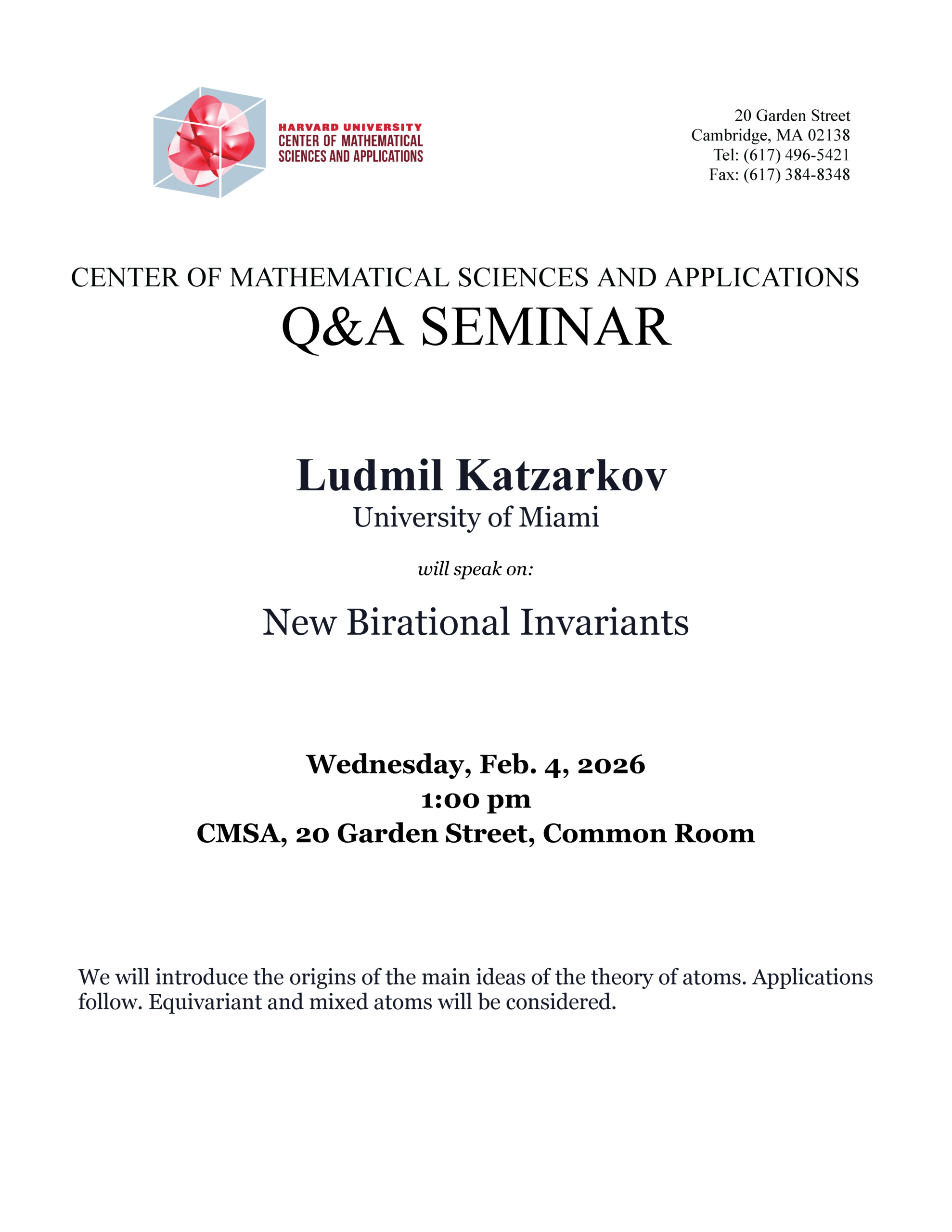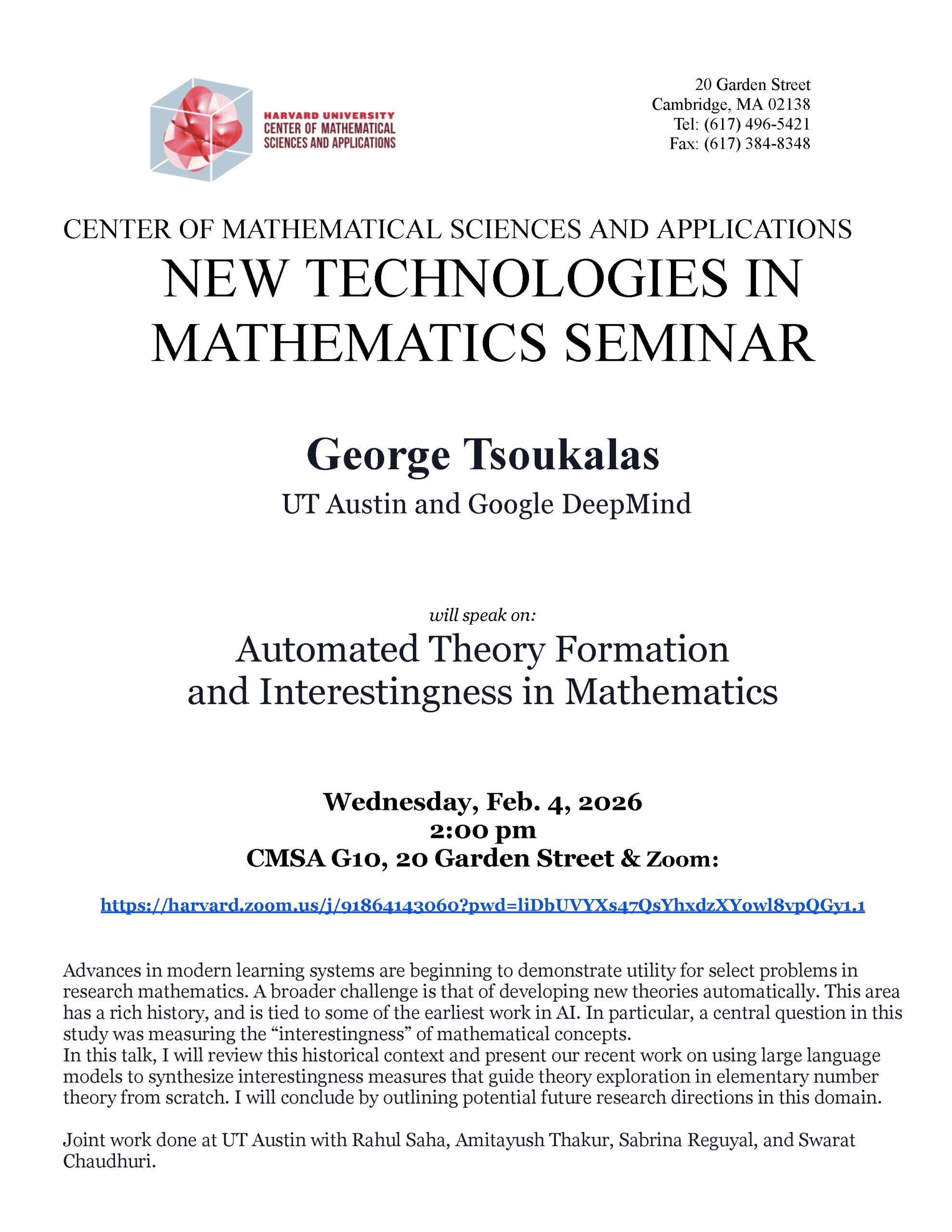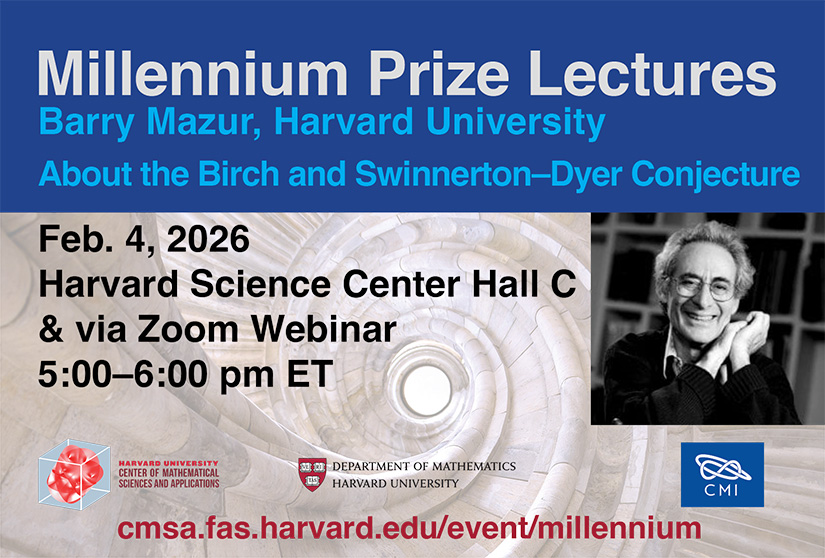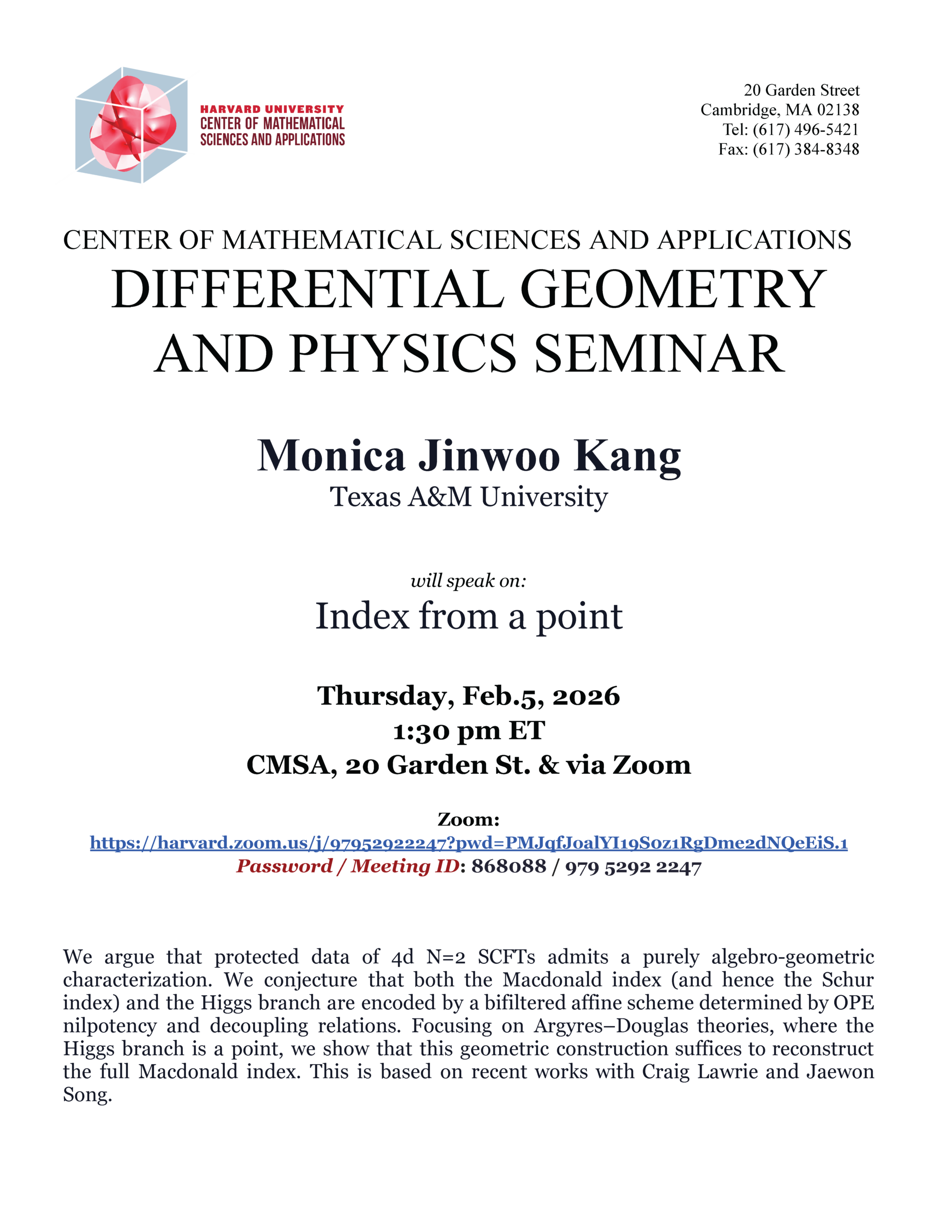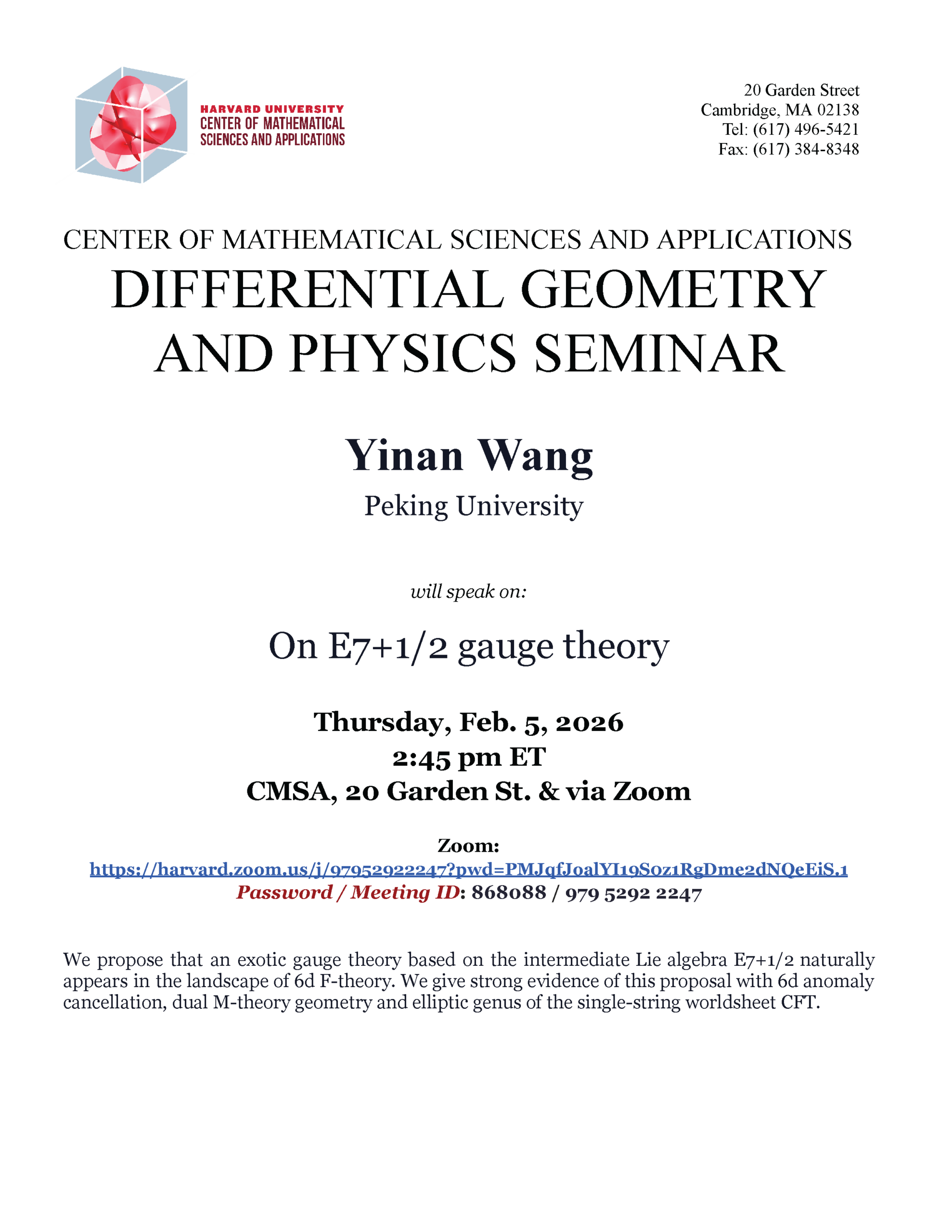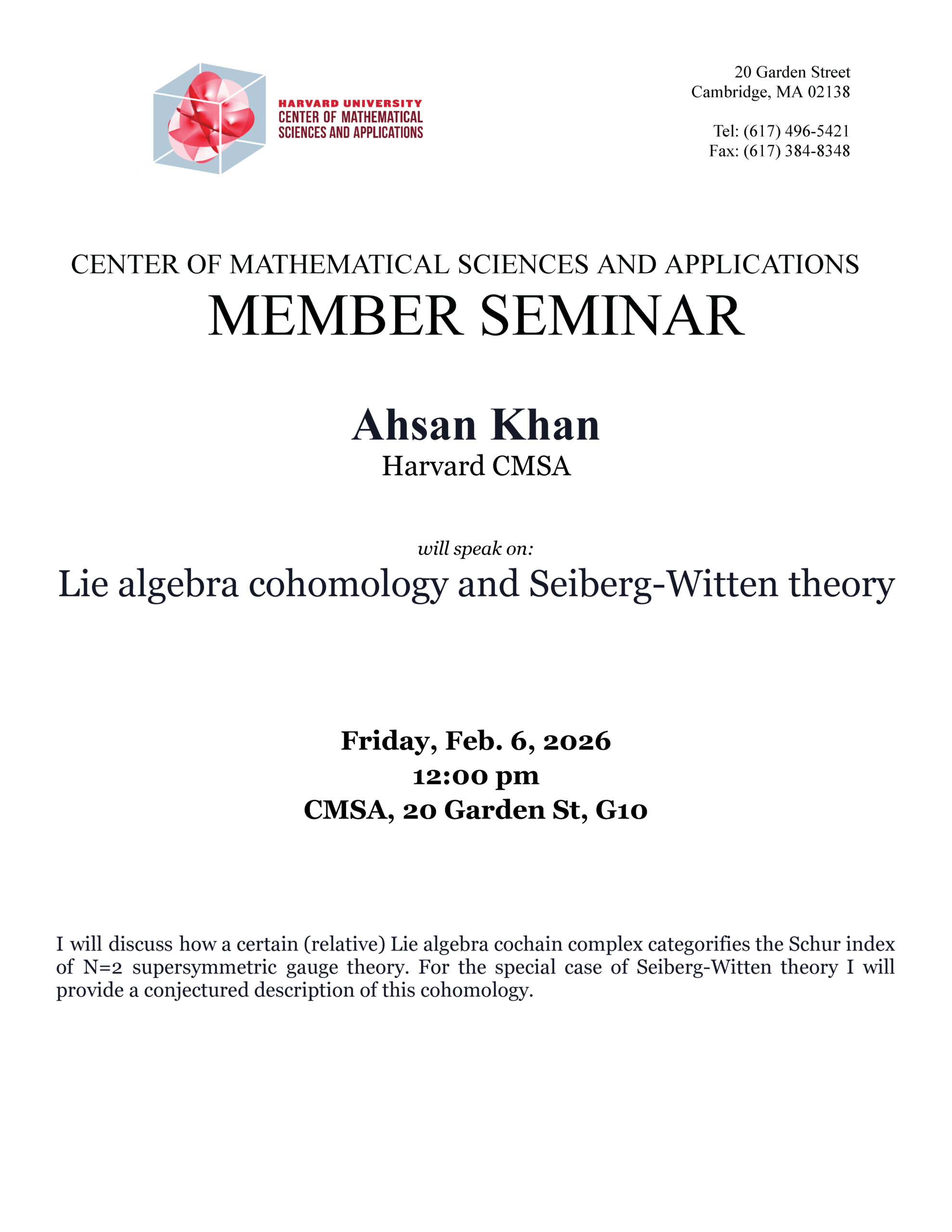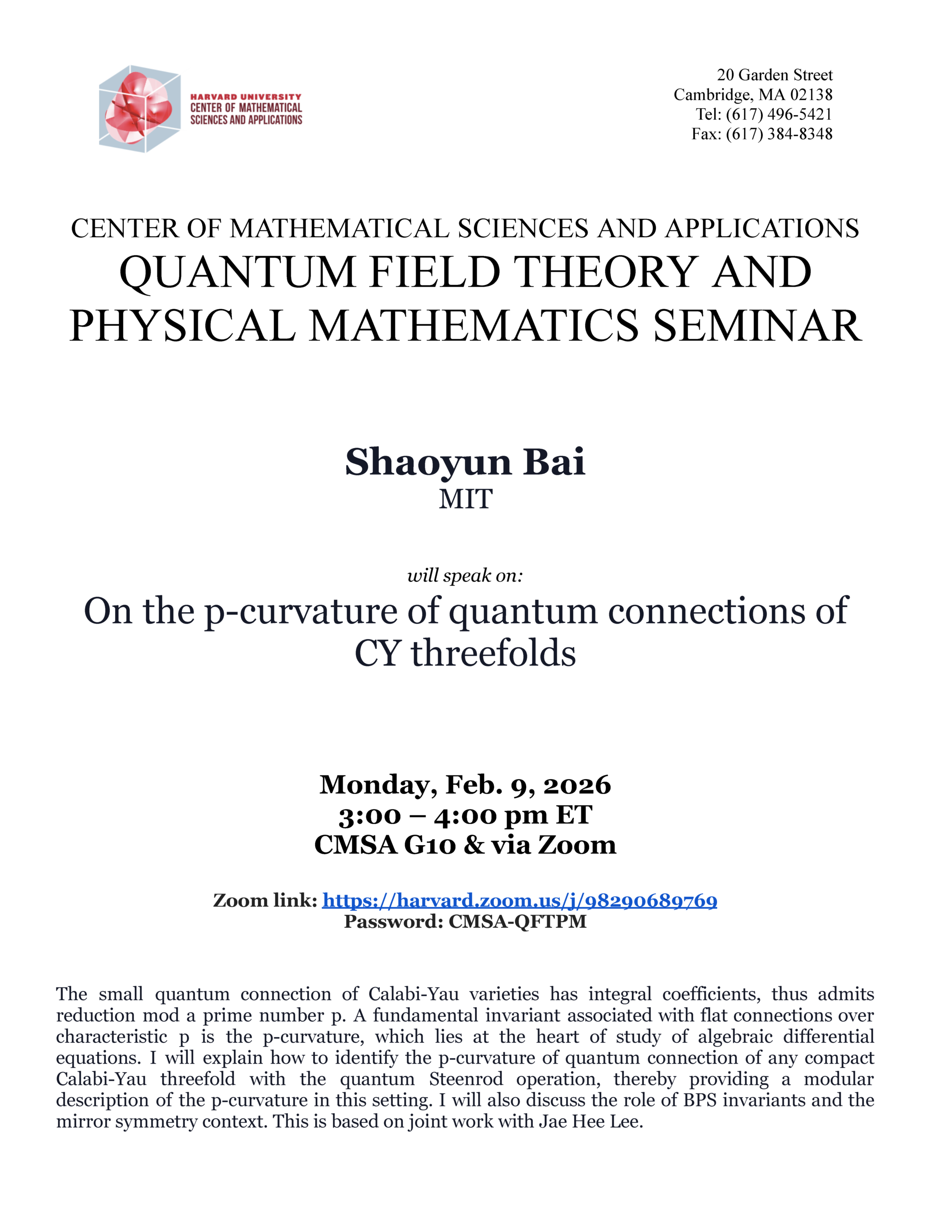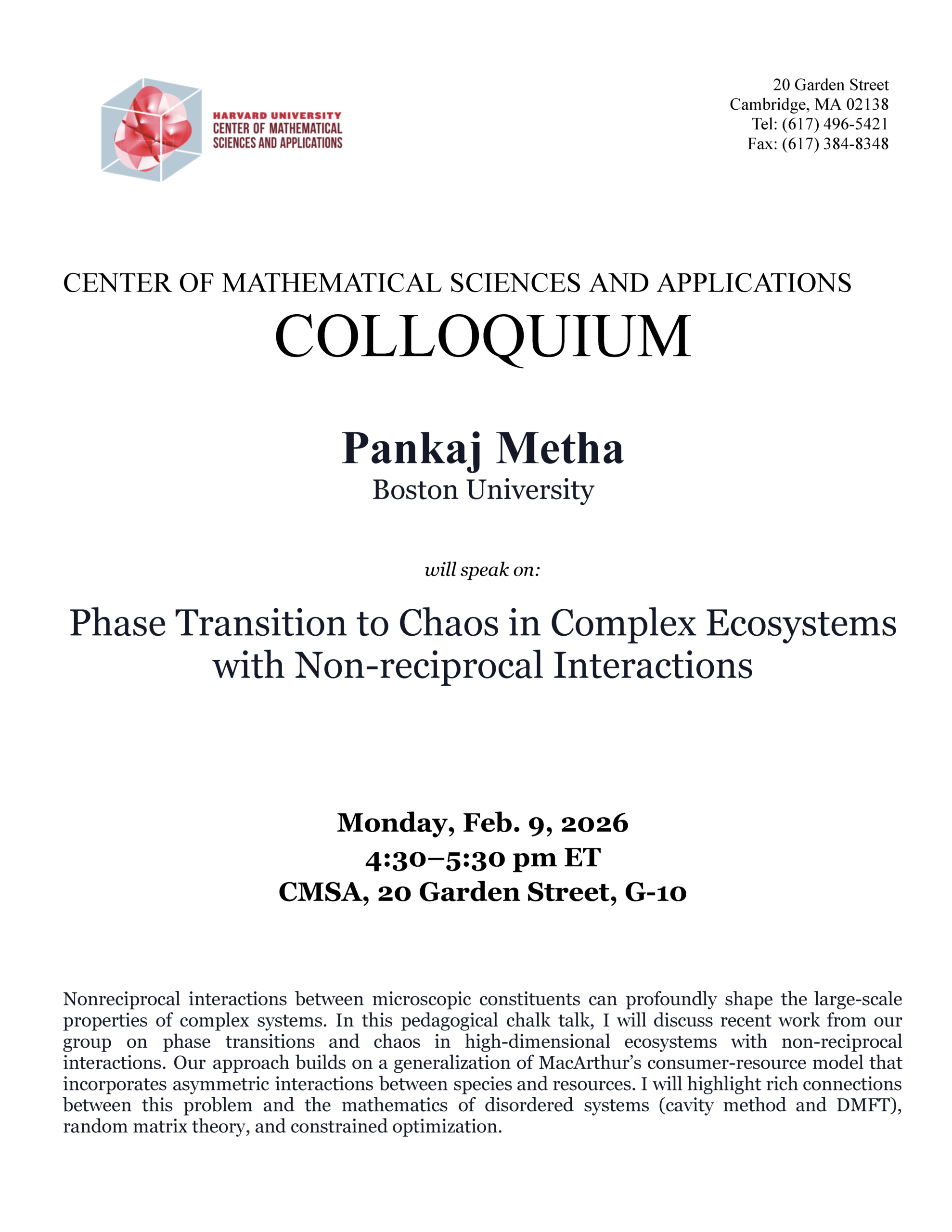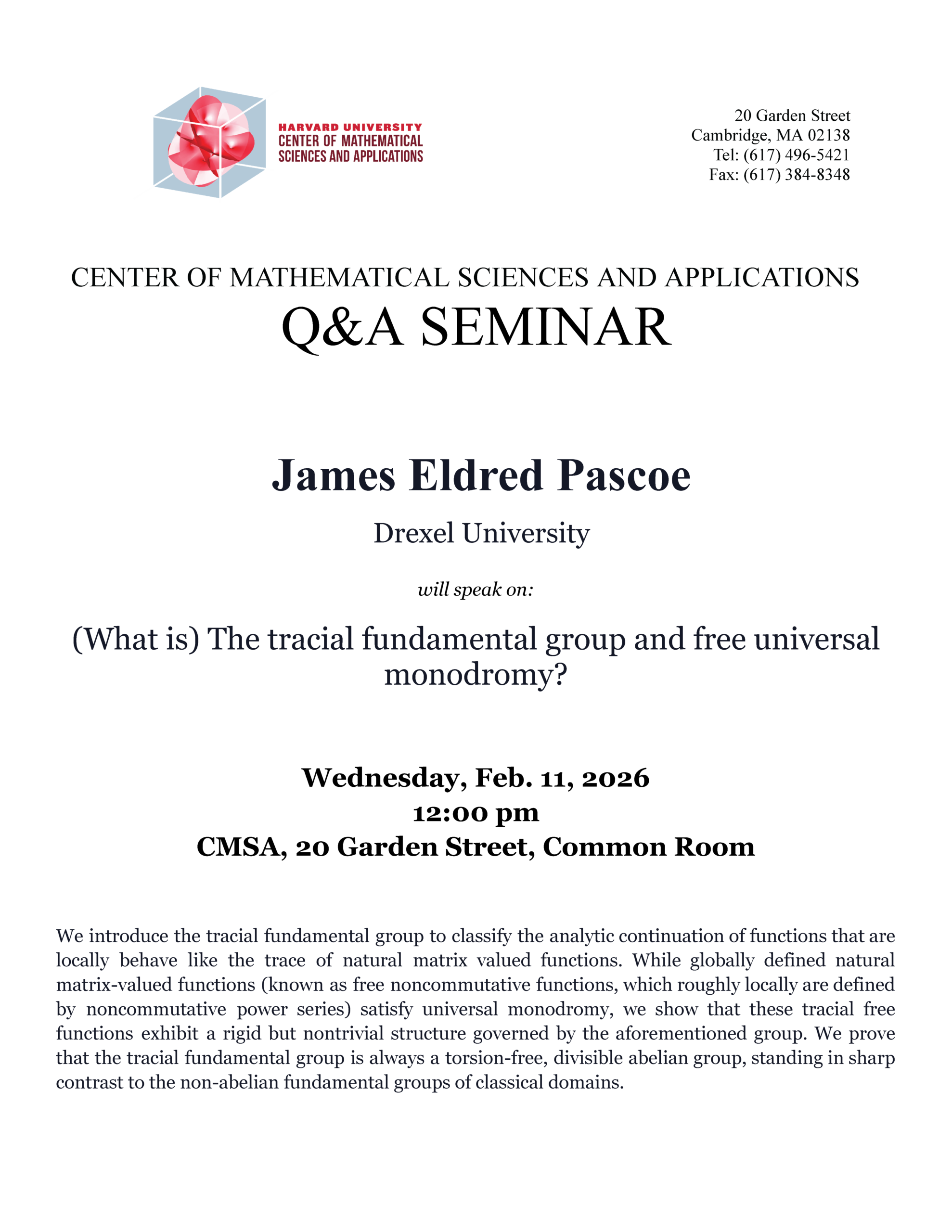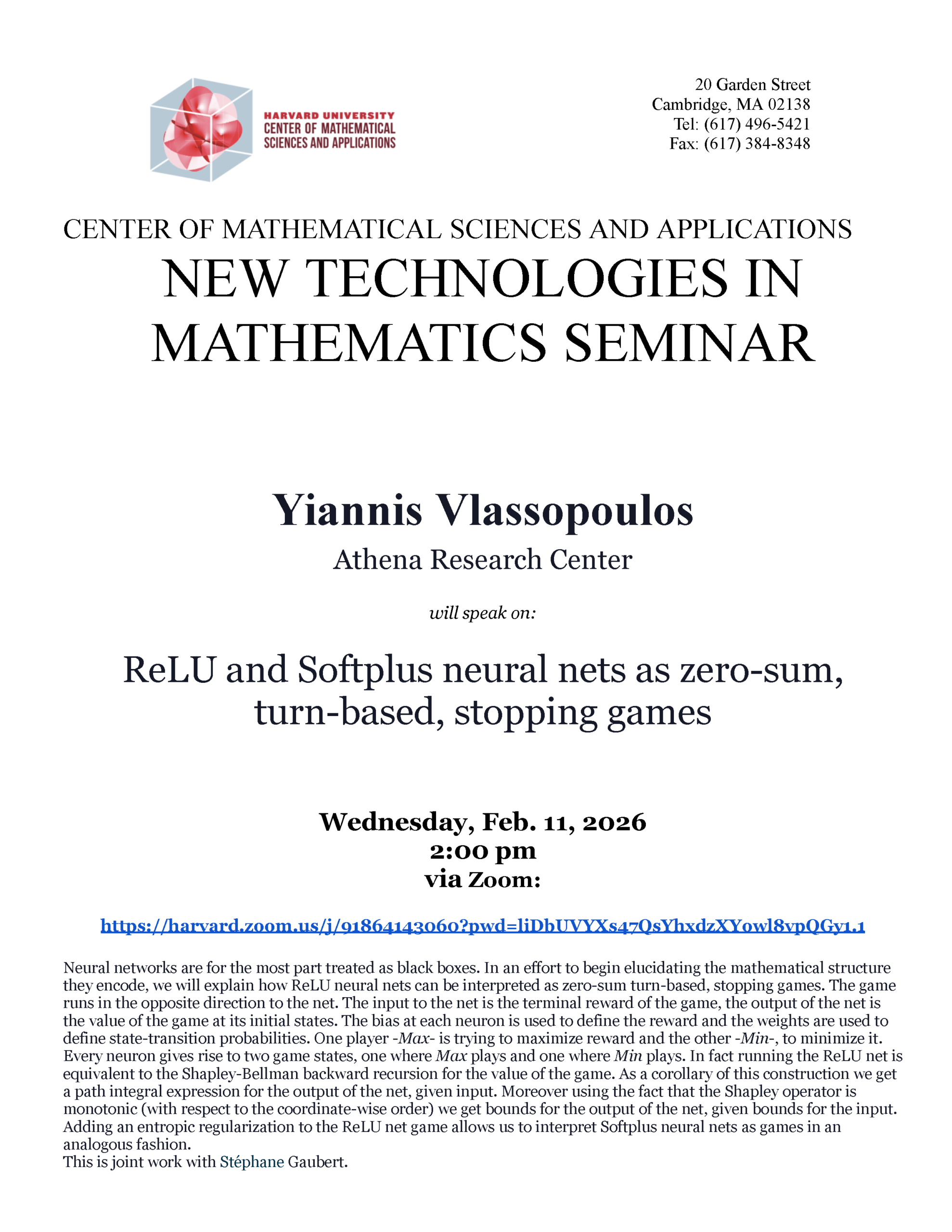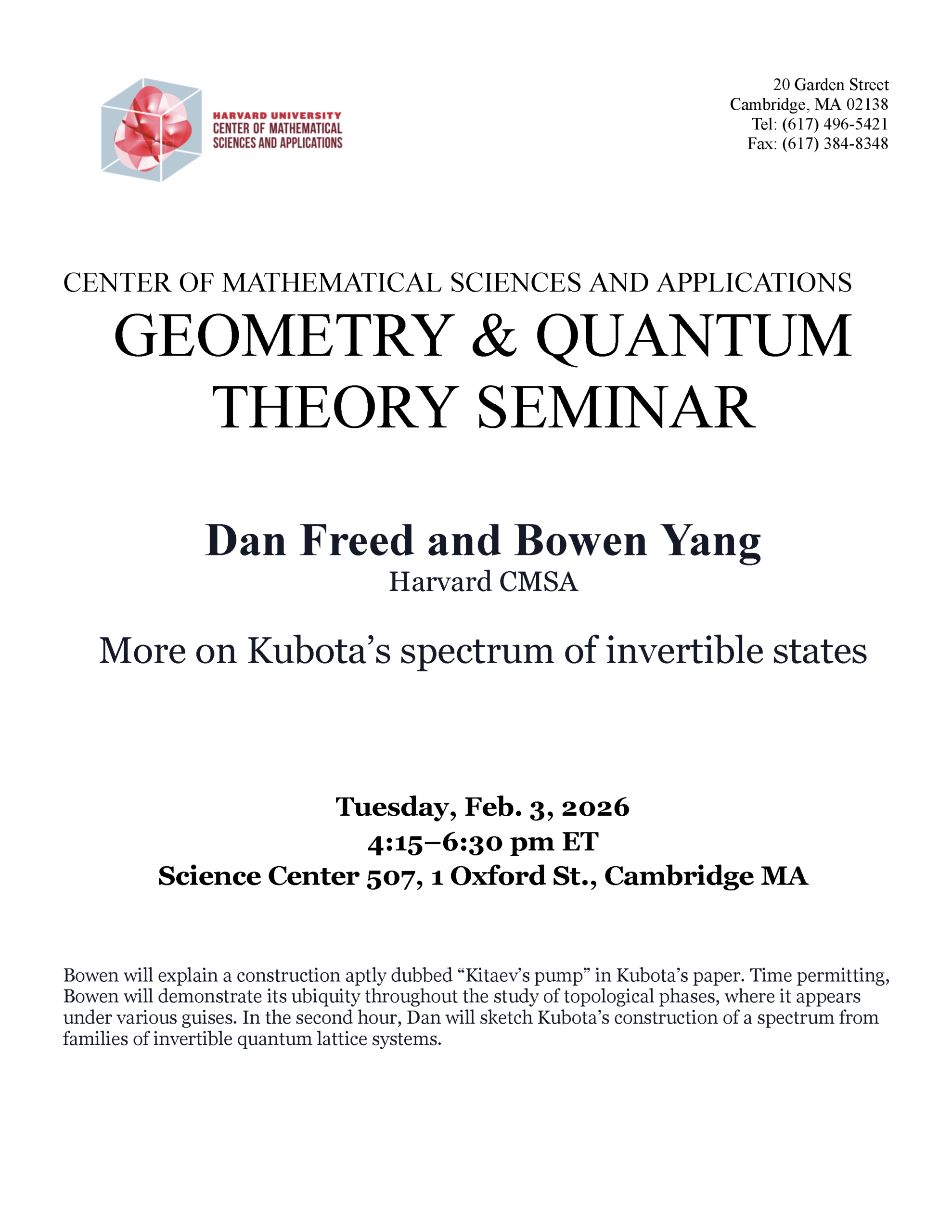
More on Kubota’s spectrum of invertible states
Geometry and Quantum Theory Seminar Speakers: Dan Freed and Bowen Yang, Harvard CMSA Title: More on Kubota's spectrum of invertible states Abstract: Bowen will explain a construction aptly dubbed “Kitaev’s pump” in Kubota’s paper. Time permitting, Bowen will demonstrate its ubiquity throughout the study of topological phases, where it appears under various guises. In the second hour, […]

